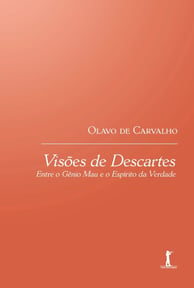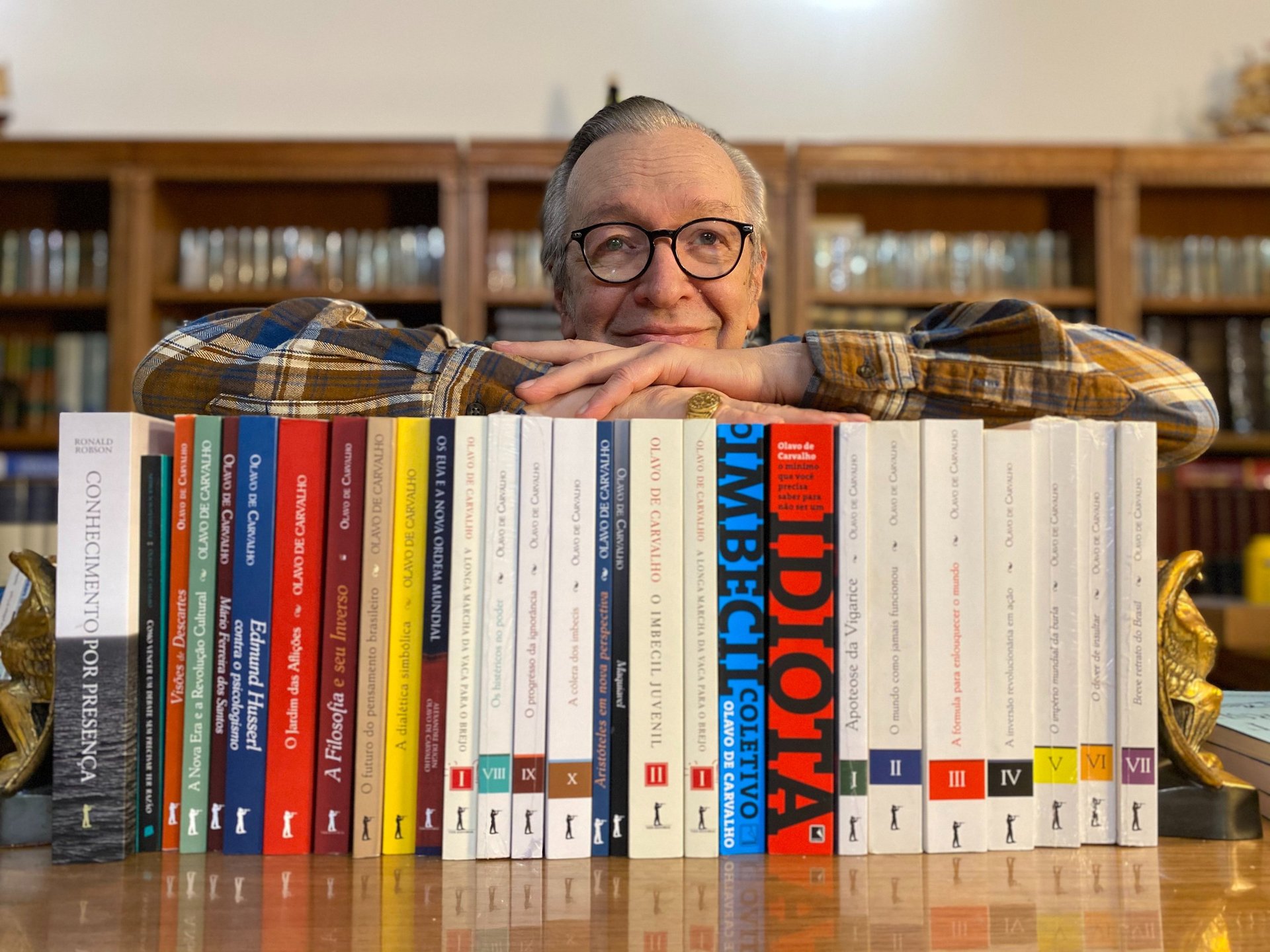
Published Works of Olavo de Carvalho
Explore works honoring Olavo de Carvalho's philosophical contributions and insights. For translation rights inquiries, please contact us directly. Please note that we only respond to inquiries from publishing houses and professional literary agencies.
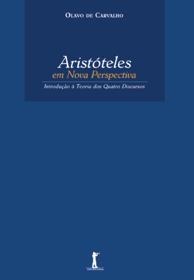

Aristotle in a New Perspective: An Introduction to the Theory of the Four Discourses
"Aristóteles em nova perspectiva: Introdução à Teoria dos Quatro Discursos," 1st edition 1994, latest edition 2013.
This book is an original contribution to universal philosophy and to Aristotelian studies. In the author's own words, there is a core idea embedded in the works of Aristotle, and it has escaped the attention of almost all his readers and commentators from antiquity to the present day. Even those who have grasped it down through the millennia—I know of only two—merely noted it in passing without explicitly affording it any decisive importance with regard to a comprehensive understanding of Aristotle’s philosophy. And yet, it is the very key to such an understanding, if by that we mean the act of capturing the unity of a man’s thought right from his own intentions and values rather than judging it from the outside in; an act that implies carefully respecting what is written between the lines, as it were, instead of smothering the work under some wrongheaded idolatry of the reified text, the very tomb of thought. I call it the Theory of the Four Discourses, and it can basically be summed up as follows: human discourse is a single power that manifests in four distinct ways: poetics, rhetoric, dialectic, and analytics (logic).
"If Voegelin had read this, he would have incorporated Olavo de Carvalho’s thought into his own to explain how we proceed from perception to science.”—Frederick Wagner, Eric Voegelin Society, letter to the Author, February 14th, 2005.
“I have known Olavo de Carvalho and his work since the spring of 2006. At that time, I had the pleasure to edit his very fine manuscript, entitled “Aristotle in a New Perspective”. After editing the manuscript, I took the uncharacteristic step of forwarding it (with the author's permission) to a few of my former professors at the University of Notre Dame. I did so because I was quite certain that the manuscript marked a highly original contribution to our understanding of Aristotle, which is no easy feat given the sheer volume of scholarship surrounding this ancient thinker.” —Jodi Bruhn, Ph.D. Research Fellow, Institute on Governance, Ottawa, Canada.
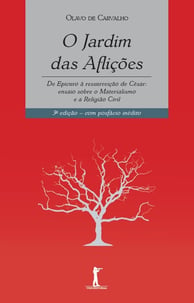

The Garden of Afflictions: From Epicurus to the Resurrection of Caesar: An Essay on Materialism and Civil Religion
"O Jardim das Aflições: De Epicuro à ressurreição de César: ensaio sobre o Materialismo e a Religião Civil"—1st edition 1995; latest edition 2019.
In the author's own words, the fundamental thesis of this essay is that the history of the West is shaped by the idea of the Empire and its successive attempts at restructuring; despite its different clothing, the ultimate goal remains the same: to expand the domains of the Empire to the limits of the visible world.
“If his work distinguishes itself from the shallow and pedantic prose of contemporary philosophers, it is mainly for its lively and good humored style, for its generous erudition and for its tireless search for intellectual honesty.”—A. F. BORGES.
The New Age and the Cultural Revolution: Fritjof Capra & Antonio Gramsci
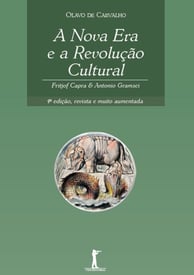

“A Nova Era e a Revolução Cultural: Fritjof Capra & Antonio Gramsci"—1st edition 1994, latest edition 2019.
The New Age, of which Fritjof Capra became a celebrated spokesperson, and Antonio Gramsci's Cultural Revolution have something in common: both aim to introduce vast, profound and irreversible changes into the human spirit. Both call for a break with the past and propose to humanity a new heaven and a new earth. The first has been gaining immense repercussions in Brazilian scientific and business circles. The second, without making as much noise, has for three decades exerted a marked influence on the course of political and cultural life in this country. Neither of them has ever been subjected to the slightest critical examination. Accepted out of mere sympathy at first sight, they penetrate, spread, gain power over consciences, and become decisive forces in the lives of millions of people who have never heard of them, but who suffer the effects of their cultural impact. For the conscious supporters and propagators of the two new proposals, nothing is more comforting than the astonished passivity with which the literate Brazilian public receives everything, admits everything, absorbs and copies everything, with that talent for mechanical imitation that compensates for the lack of true intelligence.
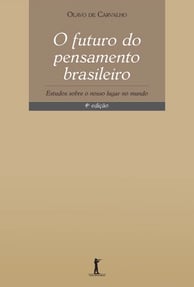

The Future of Brazilian Thought: Studies on Our Place in the World
“O Futuro do Pensamento Brasileiro: Estudos Sobre o Nosso Lugar no Mundo”— 1st edition 1997, latest edition 2016.
Olavo de Carvalho introduces the reader to the four main Brazilian intellectuals and their contributions to universal culture—Gilberto Freyre, Mário Ferreira dos Santos, Miguel Reale, and Otto Maria Carpeaux—and meditates upon the incapacity of Brazilian society to recognize and learn with its greatest minds.
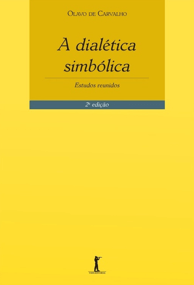

Symbolic Dialectic
“A Dialética Simbólica”— 1st edition 2007, latest edition 2015.
This book has some of Carvalho’s greatest essays on poetics and dialectics: “Literary Genres: Their Metaphysical Foundations”, based upon the symbolism of traditional languages, Carvalho restores the distinction among the literary genres and their correlation with reality; “Symbols and Myths in the film ‘The Silence of the Lambs’.” Olavo de Carvalho presents an original analysis of the film The Silence of the Lambs and uncovers the traditional initiatory structure that underlies Jonathan Demme’s Academy Award-winning thriller.
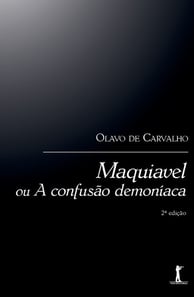

Machiavelli or the Demonic Confusion
"Maquiavel ou A Confusão Demoníaca”, 1st edition 2011, latest edition 2019.
The Prince is one of the most studied books in the political sciences. Olavo lays out the real truth behind Machiavelli and The Prince. Far from being some type of scholar or objective political scientist, Machiavelli laid traps for his readers. He quoted the Bible, but would flip its meaning on its head to spread confusion. Stalin and Hitler both studied Machiavelli. He posed as a realist when, in fact, his analysis was the height of naivety.
Visions of Descartes:
Between the Evil Genius and the Spirit of Truth
“Visões de Descartes: Entre o Gênio Mau e o Espírito da Verdade” (2013).
“The thesis that I present in this short book can be summarized as follows: the ‘Evil Genius’ to which Descartes refers is not a literary device nor a ‘psychological instrument’ used to give more credibility to the certainty of the ego cogitans, but is the true central theme of the Meditations on First Philosophy, the philosopher’s greatest work. Descartes’ project here is not to overcome mere theoretical doubt regarding the possibility of knowledge, but to appease the fear of the ‘death of the soul’ without resorting to faith or theological arguments of any nature.” — Olavo de Carvalho
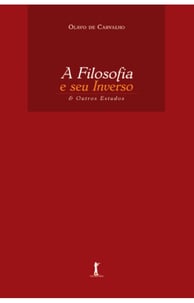

Philosophy and the Inverse Thereof
“A Filosofia e o seu Inverso” (2012).
“No one described this spirit better than Eric Voegelin when he stated that, as the old "cosmological" sense of life orientation, in which the order of existence appeared as an image of the cosmos, was lost, philosophy emerged as an attempt to find a new ordering principle, no longer in the contemplation of the physical universe, but in the interiority of the soul. In the general confusion of the world, the philosopher seeks to order their own soul to take it as a measure for assessing the external disorder.”
—Chapter “Philosophy and the Inverse Thereof”
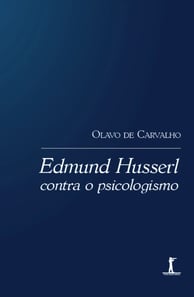

Edmund Husserl Against Psychologism
“Edmund Husserl contra o Psicologismo” (2020)
Between 1992 and 1993, in the city of Rio de Janeiro, Olavo de Carvalho taught a course on Edmund Husserl and his Logical Investigations. The classes were transcribed by the students, which generated a material with around seven hundred pages, which has now received an editorial treatment more appropriate for publication. The book that the reader has in his hands is the result of this process, guided by the preservation of the orality and expository order adopted by the author during the course.
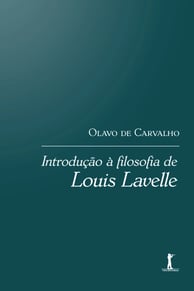

Introduction to the Philosophy of Louis Lavelle
“Introdução à filosofia de Louis Lavelle” (2021)
This volume is based on the course about the philosophy of Louis Lavelle, delivered by Olavo de Carvalho in May 2013, in Virginia. Divided into six chapters, the content ranges from the biographical aspects of the French philosopher's career to the explanation of the main concepts of his philosophy.
Carvalho introduces the concept that Lavelle's dialectical method combines inner experience with logical reasoning with great subtlety. Readers of this edition, especially those who read Lavelle's books, need the most disciplined attention and the most devoted sincerity. As a result, they can expect the widening of their own consciousness and awareness and benefit from a sharper understanding of philosophy—or reality itself, if they prefer.
This book is an introduction to the French author’s works while it contains great insights of Carvalho as he is seeking the original purpose of philosophy as a pursuit of knowledge in one’s consciousness. Louis Lavelle was an important intellectual reference for Olavo de Carvalho and the study of both philosophers is more relevant today than ever.
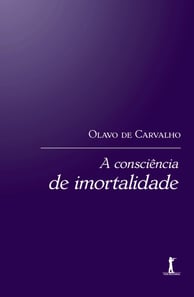

The Consciousness of Immortality
A consciência de imortalidade (2021)
“If we are immortal, we must be so in essence and not by accident. Immortality is, therefore, our true condition and the realm of reality in which we truly exist. In this case, the present bodily life is nothing more than a tiny fraction of our reality, a momentary appearance that veils our true substance. Consequently, all the knowledge we can acquire within the confines of bodily existence is merely an appearance within an appearance. Even though it may grasp genuine aspects of reality, it cannot find its own foundation within itself; rather, it must seek it in the sphere of immortality.” —Chapter “Immortality as a Premise of the Philosophical Method.”
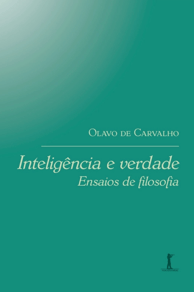

Intelligence and Truth: Essays on Philosophy
“Inteligência e Verdade: Ensaios de Filosofia” (2021)
Intelligence and Truth is a collection of essays, handouts, transcribed classes and personal notes by Olavo de Carvalho on the themes of truth and the human capacity for knowledge. It compiles and organizes texts considered by students of the Philosophy Seminar as classics and fundamental to the author's thinking, such as The Problem of Truth and the Truth of the Problem, On Loving Contemplation, Being and Knowing, The Triple Intuition, and others — in addition to the one whose name gives the entire collection its name, Intelligence and Truth. Intelligence is not limited to the mere cognitive aspect: if the power to know the truth constitutes the seed of intelligence, this seed only blossoms on the initiative of the will, and it is also through the will that it weakens and dies. Will means the exercise of freedom. When you perceive that something is true, it means that you have accepted that it is true, and when you perceive that it is false, it means that you have rejected it. Now, what accepts or rejects is not a particular faculty, but rather you as a whole, in an act of free will. This means that intelligence is inseparably the synthesis of a cognitive aptitude and a desire to know. If there were a teaching aimed at developing intelligence, it would have to, first of all, accustom the student to desire the truth in all circumstances and not to run away from it. Therefore, the exercise of intelligence necessarily has an ethical, moral side.
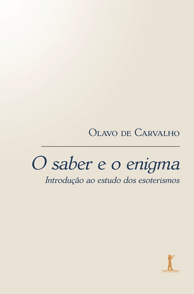

The Knowledge and the Enigma
“O Saber e o Enigma” (2022)
This introduction to the study of esotericism brings together courses, essays and notes by Olavo de Carvalho on natural symbolism, astrology and various esoteric traditions. Included here are his Notes on Symbolism and Reality, the courses Symbolism and Cosmic Order and Esotericism in History and Today, as well as the article The Claws of the Sphinx, among other studies. If symbols are merely instruments of human language, they are created by man and express nothing more than human thought itself. The famous “immanence of the temporal in the eternal and of the eternal in the temporal” is nothing more than an internal phenomenon of the human mind, being entirely temporal and having nothing eternal except a nominal claim that attests to its own impotence. Either symbols are the language of the eternal itself and the channel for its entry into the temporal sphere, or every claim to speak of the eternal only imprisons us more and more in the temporal sphere. More than the advent of mathematical physics, more than the emergence of national monarchies and a handful of competing empires, more than the art of Michelangelo and Leonardo, this question marks the passage from medieval civilization to the “Modern Age.”
“O Imbecil Coletivo: Atualidades inculturais brasileiras”— 1st edition 1994, latest edition 2021.
Since its first release, this title has always been one of Carvalho’s best sellers in Brazil. Some well-spoken intellectuals, with their ideas, are put together to prove that instead of remaining the intelligentsia they are known for, Olavo de Carvalho exposes their ignorance and dishonesty. The reader is introduced to the phenomenon he called ‘collective imbecile,’ meaning a class of highly educated personas who stupify one another with their ideas—along with his theory called ‘cognitive parallax’—that is, a disconnection between the axis of intellectuals’ theoretical construction and the axis of their lived experience.
The Collective Imbecile: Brazilian Incultural News
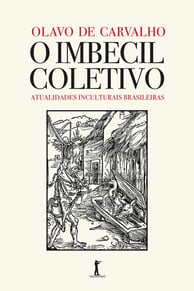

The São Paulo Forum: The Rise of Latin American Communism
O Foro de São Paulo: ascensão do comunismo latino-americano (2022)
Never in the world has there been so intimate, so persistent, so organized and so lasting coexistence between politics and crime on such a gigantic scale. In 1990, at the initiative of Fidel Castro and Lula, the first “Meeting of Left-Wing Parties and Organizations of Latin America and the Caribbean” took place in São Paulo. The meeting, which would later become known as the São Paulo Forum, brought together dozens of political parties and criminal organizations, such as the FARC and the Chilean MIR. Since then, the strategic articulation between politicians, dictators and terrorists has dictated the course of Latin American political life, with the complicit silence of the mainstream media. A voice crying out in the wilderness, for decades, Olavo de Carvalho dedicated much of his space in the press to denouncing this power scheme that was at the forefront of entire nations. The texts organized here by Carlos Felice and Evandro Santos de Albuquerque bring together the best of this work, which after more than thirty years remains as relevant as ever.
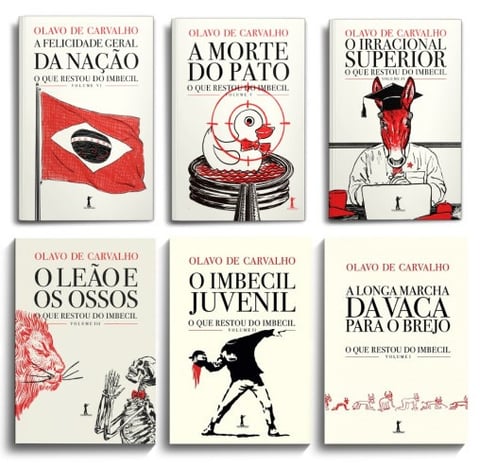

What Was Left Out from The Imbecile Series
"O que restou do Imbecil"—a series in 6 volumes:
Vol. 1: The Cow's Long March to the Swamp “A Longa Marcha da Vaca para o Brejo”— 1st edition 1998, latest edition 2019.
Vol. 2: The juvenile imbecile “O imbecil juvenil”
Vol. 3: The lion and the bones “O leão e os ossos”
Vol. 4: The superior irrational “O irracional superior”
Vol. 5: The death of the sitting duck “A morte do pato”
Vol. 6: The general happiness of the nation “A felicidade geral da nação”
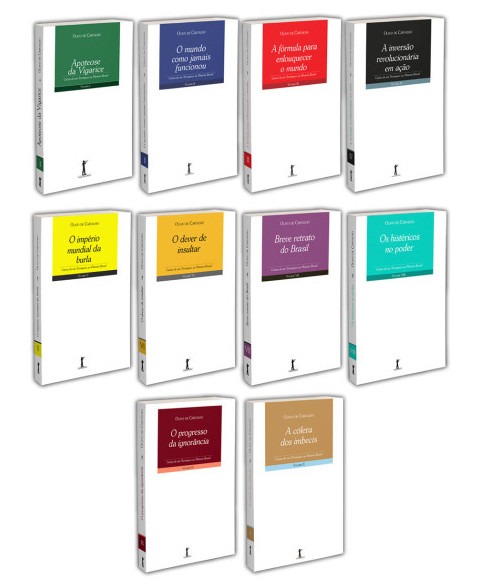

Letters from an Earthling to Planet Brazil Series
"Cartas de um terráqueo ao planeta Brasil," a series in 10 volumes:
Vol. 1: The Apotheosis of Dishonesty (2013)
Vol. 2: The World as It Never Worked (2014)
Vol. 3: A Formula to Drive the World Crazy (2014)
Vol. 4: Revolutionary Inversion in Action (2015)
Vol. 5: The World Empire of Buffoonery (2016)
Vol. 6: Duty to Insult (2016)
Vol. 7: A Brief Portrait of Brazil (2017)
Vol. 8: Hysteria in Power (2018)
Vol. 9: The Progress of Ignorance (2019)
Vol. 10: The Wrath of the Imbeciles (2019)
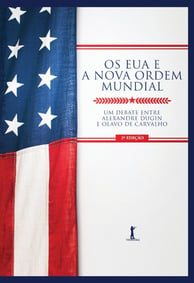

“Os EUA e a Nova Ordem Mundial: Um debate entre Olavo de Carvalho e Aleksandr Dugin” (2012).
Both participants responded to the question: “What are the historical, political, ideological, and economic factors and actors that now define the dynamics and configuration of power in the world, and what is the U.S. position in what is known as the New World Order?”
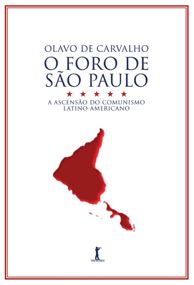

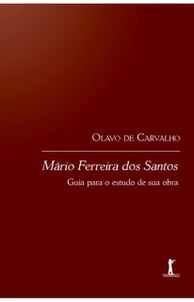

"Mário Ferreira dos Santos: Um guia para o estudo de sua obra" (2021)
Over more than two decades of teaching, Olavo de Carvalho has already exposed his students on several occasions to the principles and monumental discoveries of the philosophy of Mário Ferreira dos Santos, whom Olavo does not hesitate to refer to as "one of the greatest philosophers of the 20th century—not only in Brazil, but in the world". This book brings together the essentials of what Olavo wrote and taught about Mário's work.
Mário Ferreira dos Santos: A guide to the study of his work
The USA and the New World Order: A Debate Between Olavo de Carvalho and Aleksandr Dugin

The USA and the New World Order: A Debate Between Olavo de Carvalho and Aleksandr Dugin
Both participants responded to the question: “What are the historical, political, ideological, and economic factors and actors that now define the dynamics and configuration of power in the world, and what is the U.S. position in what is known as the New World Order?”
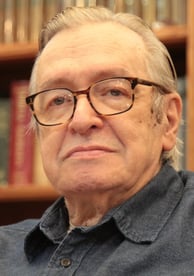









The Olavo de Carvalho Reader
For the first time available to the international audience, explore the best introduction to Olavo de Carvalho's philosophy.
Machiavelli or the Dominic Confusion
Discover Olavo de Carvalho's extensive collection of writings.
Aristotle in a New Perspective
Introduction to the Theory of the Four Discourses

